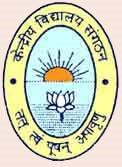By Anupama Chopra
The New York TimesFRIDAY, JULY 28, 2006
'Leave my son," a dying man tells his daughter-in-law from a hospital bed. "You don't love him. By staying with him you are denying him of someone else's love and yourself of true love. These unfulfilled relationships won't make anyone happy." The man had stumbled upon his daughter-in-law nuzzling her lover in a public space. Now he confronts her in a moment fraught with ache and regret.
As Bollywood's leading stars, Amitabh Bachchan and Rani Mukherjee, act out the scene, the director, Karan Johar, anxiously watches the monitor. He has reason to be nervous.
For the past decade Johar, 34, has had a dream run at the box office, directing glossy family dramas in which the united Hindu family is unabashedly celebrated and propagated. "I have always played safe," Johar said in an interview here during filming last March, "and therefore never been sorry." But with "Kabhi Alvida Naa Kehna" ("Never Say Goodbye"), he enters alien, high-risk territory: the modern Indian marriage.
The film, set in New York, is the story of Dev, a man whose shining career as a soccer player is cut short by an accident that leaves him with a limp. He is unfulfilled, embittered and quietly resentful, especially of his wife, who enjoys a soaring career at a fashion magazine. He meets Maya, whose marriage seems similarly sparkless, through no fault of her adoring husband. The two endeavor to help each other fix their fractured marriages but end up falling in love. The plot is an emotional roller coaster, with confrontations, disappointed parents, wounded spouses and, inevitably, divorce.
"Kabhi Alvida Naa Kehna" will have the typical Johar trademarks: overblown set-piece songs, designer styling and A-list stars. Set for release worldwide on Aug. 11, with a budget of more than $10 million, it is one of Bollywood's most expensive and awaited films this year.
And as such, it still treads carefully when it comes to depicting infidelity by Indian cinema's favorite romantic idol, Shahrukh Khan, as the faltering husband. "Shahrukh Khan has to be a screen virgin," Johar said. "For him to cheat with somebody else's wife is blasphemy." But increasingly realistic portrayals of marriage - happy and otherwise - are very much on the mind of Bollywood these days. Most Hindi films have culminated with a happily- ever-after snapshot of a bride and groom surrounded by a doting family. Few directors dared to explore the morning after. Filmmakers preferred to portray young love, which was usually childlike in its innocence and naïvely disconnected from complications, emotional or sexual.
Through much of the 1990s, Hindi films successfully peddled the fantasy of the joint family, in which not only did the husband and wife love each other, but the in-laws, aunts, uncles, servants and even pets also seemed inordinately cheerful. This extended family was posited as the moral center of Indian culture.
The last film Johar directed, "Kabhi Kushi Kabhie Gham" ("Sometimes Happiness, Sometimes Sorrow") was marketed with the tag line: "It's all about loving your parents." (In contrast "Kabhi Alvida Naa Kehna" is being sold as "a love that broke all relationships.") The author Shobhaa De, whose book "Spouse: The Truth About Marriage" has sold a record 47,000 copies, called such cheerleading movies "a panic attack," adding, "These films re- emphasized and underlined that the family is paramount when actually everything around us was crumbling."
The institution of marriage was radically redefined in urban India after the nation's liberalization movement began in 1991. So much so that, as Dr. Rajesh Parikh, a neuropsychiatrist at the Jaslok Hospital and Research Center in Mumbai, put it: "The modern marriage barely reveals its lineage from the traditional marriage of decades ago. Today marriage covers the entire gamut from altered gender roles, satellite relationships, geographical separations and divorce."
There are no national records available, but experts agree that divorce rates have risen significantly. Over the years much media coverage has been devoted to urban stress, the new empowered Indian woman, the phenomena known as DINK (double income no kids) and DINS (double income no sex), the emergence of marriage counseling and, of course, high-profile celebrity break-ups. "Beyond a point," the director Rajat Kapoor said, "we couldn't look away from the reality of modern marriage."
Kapoor's most recent film is "Mixed Doubles," about a young couple in Mumbai whose passion for each other is lost in the grind of grocery shopping and child rearing. Both are educated, English-speaking, upper-class professionals. The husband, affectionate but bored (they haven't had sex for 40 days), suggests to his wife that they spice up their lives by swinging with another couple. The film is funny and poignant. At one point the four sit around pondering the logistics of their night out (what to do with one couple's son?) while the child scampers about the room.
When "Mixed Doubles" was released in February, Kapoor, who works outside the mainstream with small budgets, was afraid of a backlash. But the film, which cost $370,000 to make, went on to gross about $730,000 and made the rounds at several festivals.
Bollywood's biggest hit of 2005 was a comedy of errors, "No Entry," in which several husbands try to cheat on their wives. Marriage has become prime fodder for fun - a slew of comedies including "Shaadi No.1" ("No.1 Marriage"), "Shaadi Se Pehle" ("Before Marriage") and "Shaadi Ke Baad" ("After Marriage") have been released or are being made.
Meanwhile filmmakers like Johar are struggling with questions of intimacy (will the audience accept their screen idols sleeping together?), morality ("I can't be sanctioning infidelity," Johar said) and language (conversations about sex are difficult to have in Hindi because the words are either too archaic or too uncouth). Johar solved the last problem in "Kabhi Alvida Naa Kehna" by having his characters break into English.
The box office prospects for "Kabhi Alvida" are tricky to predict. The star, Khan, has a global following, and Indians abroad are a key constituency for these family epics. Those viewers tend to be more conservative than audiences at home and prefer heroes who are heroic in the traditional sense.
"Dev is more real and flawed than the characters I've done before," Khan wrote in a phone text message. "He has the weakness to fall out of love with his marriage but the strength to accept the guilt that comes with doing that. So is he finally happy? Even he doesn't know."
The success or failure of "Kabhi Alvida Naa Kehna" will test how much audiences are willing to let go of the favorite family fantasy. As De points out: "'Mixed Doubles' is art house. We think, 'It's not about us, it's about them.' But a Karan Johar film is definitely about us."
http://www.iht.com/articles/2006/07/27/news/fmlede28.php















1 Comments:
Hey! Found your blog thru Beth's! Great to see so many Bollywood bloggers here. I'm one too! (Write and direct) And I thought i was the only one with a fauji background! :)
And hey, I've not seen Strings yet, but caught the promos and really liked the music! Way to go, dude!
:)
Post a Comment
<< Home